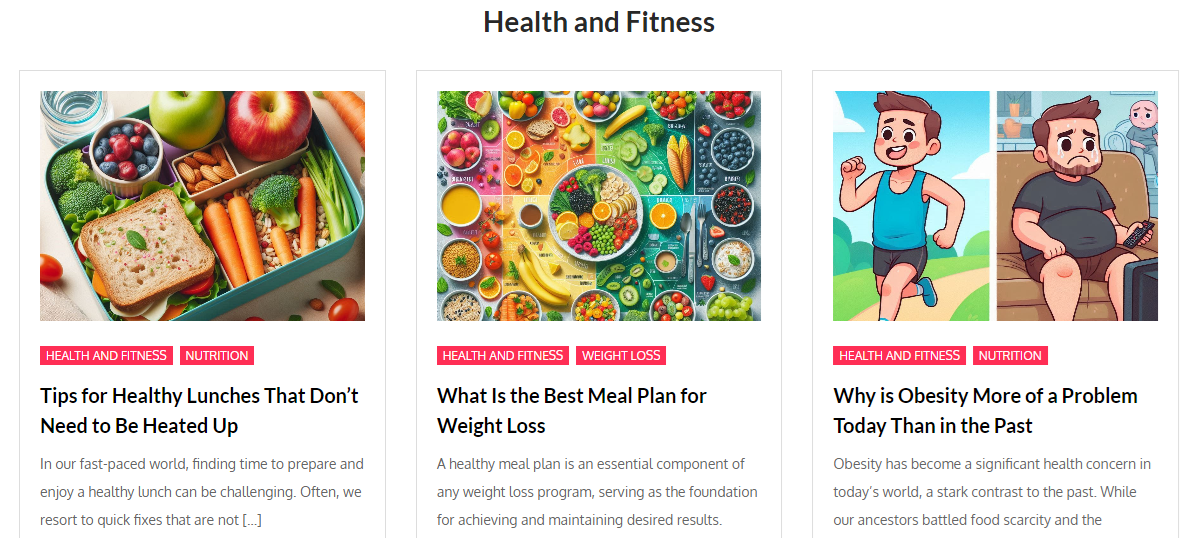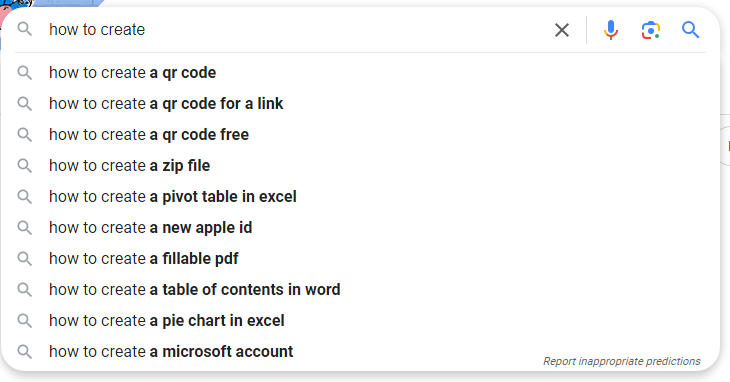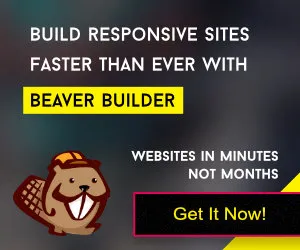Table of Contents
Toggle Choosing a profitable niche for your website is a critical step in building a successful online business. The right niche can make the difference between a thriving, income-generating site and one that struggles to attract visitors. A well-defined niche allows you to focus your efforts on a specific audience, tailoring your content, products, and services to meet their needs. This focused approach not only enhances your ability to engage with your audience but also positions you as an authority in that particular area. By understanding the intricacies of your chosen niche, you can leverage your expertise to create valuable content that resonates with your target market, ultimately driving traffic and increasing conversions.
Choosing a profitable niche for your website is a critical step in building a successful online business. The right niche can make the difference between a thriving, income-generating site and one that struggles to attract visitors. A well-defined niche allows you to focus your efforts on a specific audience, tailoring your content, products, and services to meet their needs. This focused approach not only enhances your ability to engage with your audience but also positions you as an authority in that particular area. By understanding the intricacies of your chosen niche, you can leverage your expertise to create valuable content that resonates with your target market, ultimately driving traffic and increasing conversions.
In this guide, we will walk you through the process of selecting a profitable business, ensuring your website stands out in a competitive market. We will explore essential steps such as conducting market research, analyzing competition, and validating your business idea. Additionally, we will discuss the importance of aligning your niche with your interests and passions, as this alignment can sustain your motivation and creativity over time. By following these strategies, you will be well-equipped to carve out a unique space in the online marketplace, attracting the right audience and setting the foundation for a successful online venture.
Understanding What a Niche Is
Definition of a Niche
A niche is a specific segment of a market that caters to a particular audience’s interests, needs, or problems. It’s a focused area where you can become an expert and build a dedicated following.
Importance of Choosing the Right Niche
Selecting the right niche is crucial because it:
- Determines Your Audience: Helps you target a specific group of people for:
- Targeted Content Creation: Identifying your audience allows you to tailor your website’s content, ensuring it resonates with their interests, needs, and preferences, which enhances engagement and encourages repeat visits.
- Effective Marketing Strategies: Knowing your audience helps in crafting targeted marketing strategies, enabling you to allocate resources efficiently and choose the right channels to reach potential visitors, ultimately maximizing your outreach.
- Competitive Advantage: By understanding the demographics and behaviors of your audience, you can differentiate your website from competitors, positioning yourself as a go-to resource within your business and fostering a loyal community around your brand.
- Affects Your Content Strategy: Guides the type of content you’ll create for:
- Alignment with Expertise and Audience Needs: Choosing a business that aligns with your expertise and audience needs is crucial for developing a content strategy that resonates and engages effectively, ensuring that your content is both relevant and authoritative.
- Differentiation and Authority: A well-defined business allows you to establish authority and differentiate your brand by focusing on specific topics that are not overly saturated, which helps in building trust and recognition within your target audience.
- Scalability and Flexibility: Selecting a business that evolves with trends and audience interests enables scalability and flexibility in your content strategy, allowing you to adapt to changes and maintain relevance in a dynamic digital landscape.
- Impacts Monetization: Influences how you’ll make money from your site.
- The Chosen Niche: The business you choose determines your target audience, influencing the types of products or services you can offer and their pricing.
- Defined Niche: A well-defined business allows for more effective marketing strategies, helping you attract loyal customers who are willing to pay for specialized content.
- Profitability Niche: Additionally, a profitable business can lead to higher conversion rates, as you cater directly to a specific group with tailored offerings.
- Profit Margins: Look for niches with high profit potential and manageable costs.
- Influences Price: The business you choose affects profit margins by influencing the cost of goods or services, with specialized niches often allowing for higher pricing due to less competition.
- Focused Niche: A focused business can reduce marketing expenses by targeting a specific audience, thereby increasing overall profitability.
- High Demand Niche: Additionally, a business with higher demand and limited supply can lead to premium pricing, further boosting profit margins.
- Sustainability: Choose niches with lasting appeal rather than fleeting trends.
- Long Term Profit: Choosing a business with lasting appeal ensures sustained interest from your audience, leading to long-term profitability and customer loyalty.
- Timeless: Unlike fleeting trends, a timeless business allows you to build a stable brand identity and avoid the risks of market saturation or decline.
- Consistency: This stability enables you to develop consistent content and products, which can continue generating revenue well into the future.
- Scalability: Select niches that allow for growth and expansion over time.
- Selection: Selecting a business that allows for growth and expansion ensures you can introduce new products or services, keeping your business dynamic and relevant.
- Diversity: A scalable business offers opportunities to diversify your offerings, catering to evolving customer needs and increasing revenue streams.
- Larger Markets: Additionally, a growth-oriented business enables you to tap into larger markets, fostering long-term business development and sustainability.
- Accessibility: Ensure the target market is reachable through effective marketing channels.
- Reachable Market: Choosing a business with a reachable target market ensures that your marketing efforts can effectively engage potential customers through the right channels.
- Well-Defined: A well-defined business allows you to focus on specific platforms, like social media or email, where your audience is most active, maximizing your marketing impact.
- Reduce Ad Costs: This targeted approach reduces advertising costs and increases conversion rates, as you connect directly with those interested in your business.
- Regulatory Considerations: Understand any legal requirements that may impact entry.
- Compliance: Understanding the legal requirements for your business is crucial to ensure compliance with regulations, avoiding fines or legal disputes.
- Requirements: Certain niches may require specific licenses, permits, or adherence to industry standards, which must be met before you can operate.
- Stay Informed: Staying informed about these legal obligations
- Innovation Potential: Seek niches that allow for product or service evolution.
- Adaptation: Seeking niches that allow for product or service evolution ensures your business can adapt to changing market trends and customer preferences, staying competitive over time.
- Flexibility: A flexible business enables you to innovate and expand your offerings, keeping your audience engaged and opening up new revenue streams.
- Responsive: This adaptability also allows you to respond to emerging opportunities, ensuring sustained growth and relevance in your industry.
- Online Viability: Assess the niche’s suitability for online sales and marketing strategies.
- Assement: Assessing the niche’s suitability for online sales and marketing strategies ensures that your products or services can effectively reach a digital audience, maximizing your business’s visibility.
- Thrive: A business that thrives in an online environment allows you to leverage e-commerce platforms, social media, and digital advertising for broader reach and engagement.
- Growth: This suitability also supports scalable growth, as online channels can efficiently target and convert customers worldwide.
Steps to Choose a Profitable Niche
1. Identify Your Interests and Passions
Start by listing topics you’re passionate about. Building a website around your interests will keep you motivated and make content creation enjoyable.
Questions to Consider:
- What are my passions?: Identify the topics or activities that excite and motivate you.
- What skills do I possess?: Consider your expertise and how it can enhance your content.
- What problems can I solve?: Think about the challenges others face that you can address through your website.
- Who is my target audience?: Define the demographics and interests of the people you want to reach.
- What trends are emerging?: Research current market trends to find relevant and timely topics.
- What do I enjoy learning about?: Reflect on subjects that you are eager to explore further.
- What are my long-term goals?: Consider how your interests align with your future aspirations for the website.
- What content do I consume?: Analyze the types of websites, blogs, or videos you frequently engage with.
- What niche communities exist?: Investigate online forums or groups related to your interests to gauge community engagement.
- What unique perspective can I offer?: Identify how your viewpoint or experience can differentiate your website from others.
2. Research Market Demand
Ensure there’s a demand for your business. Use tools like Google Trends, Keyword Planner, and Ahrefs to analyze search volume and trends.
How to Research Market Demand:
- AlsoAsked: People also ask data that appears in Google searches.
- Keyword Tool: Finds the best keyword for your blog.
- Google Trends: Identify trending topics and seasonal interest.
- Google Keyword Planner: Find keywords with high search volume and low competition.
- Ahrefs: Analyze competitor websites and keyword difficulty.
- Google Suggestions: Using Google’s suggestions drop-down can be an effective strategy for identifying business topics for a website. When you start typing a keyword, the autocomplete feature reveals popular search queries related to that term, which can highlight emerging interests and specific long-tail keywords that may not be immediately obvious. By analyzing these suggestions, you can discover less competitive niches that have a dedicated audience, allowing you to create content that meets specific user needs and potentially ranks well in search results.

3. Evaluate Competition
Assess the competition within your chosen business. High competition can indicate a profitable business, but too much can make it hard to stand out.
Tools to Evaluate Competition:
- SEMrush: Analyze competitors’ traffic and keywords.
- Moz: Evaluate domain authority and backlink profiles.
- SpyFu: Track competitors’ PPC and SEO strategies.
- Google Alerts: Sends notifications about competitors’ online mentions.
4. Define Your Target Audience
Understand who your audience is and what they need. Create a detailed audience persona including demographics, interests, and pain points.
Steps to Define Your Target Audience:
- Demographics: Age, gender, location, income level.
- Age: When defining your audience for a business website, you should consider demographics like age, as it influences the type of content and products that will resonate with your target group.
- Gender and Income: You should also examine gender and income levels, as these factors affect purchasing behavior and the affordability of your offerings.
- Location: Additionally, understanding the geographic location and cultural background of your audience helps tailor your marketing strategies and product development to meet specific regional or cultural needs.
- Interests: Hobbies, lifestyle, preferences.
- Hobbies: When defining your audience for a niche website, analyze hobbies to align your content or products with their interests, ensuring relevancy and engagement.
- Lifestyle: Consider lifestyle factors, such as daily routines and values, to tailor your offerings in a way that complements their way of life and enhances their overall experience.
- Preferences: Additionally, understanding preferences, such as favorite activities or media consumption habits, allows you to customize your marketing strategies and content to better capture their attention and drive conversion.
- Pain Points: Challenges, needs, and problems they face.
- Challenges: When defining your audience for a niche website, identify the challenges they face to tailor your solutions or content to address these specific issues effectively.
- Needs: Understand their needs by assessing what they seek to achieve or improve, ensuring your offerings align with their goals and provide tangible value.
- Problems: Additionally, analyze the problems they encounter in their daily lives or industry to develop products or services that offer practical solutions and resonate deeply with their experiences.
5. Assess Monetization Potential
Evaluate how you can monetize your niche. Consider various revenue streams such as affiliate marketing, selling products, offering services, or running ads.
Monetization Methods:
- Affiliate Marketing: Promote products and earn commissions. When you are deciding on which affiliate programs to promote for a niche website, look for programs that offer products or services closely aligned with your audience’s interests and needs, ensuring relevance and higher conversion rates. Additionally, consider the program’s commission structure, payment terms, and the reputation of the affiliate network to maximize earnings while maintaining trust with your audience.
- Selling Products: Create and sell physical or digital products. To determine the best physical or digital products to sell based on your chosen niche, evaluate which products directly solve the specific problems or meet the needs of your target audience, ensuring they add clear value. Consider market demand, production or creation costs, and the scalability of these products, selecting those that offer the highest potential for profitability and long-term growth within your niche.
- Offering Services: Provide consulting, coaching, or freelance services. Starting a service business can be a lucrative venture by identifying a niche market where your skills and expertise meet customer needs; for instance, offering specialized consulting, personal training, or home improvement services can attract a dedicated clientele. To maximize profitability, it’s essential to develop a robust marketing strategy, leverage social media for visibility, and build strong relationships with clients through exceptional service and follow-up, ensuring repeat business and referrals.
6. Validate Your Niche Idea
Test your niche idea to ensure it’s viable. Create a small amount of content and gauge the response from your audience.
Ways to Validate Your Niche:
- Surveys and Polls: Ask potential audience members for feedback. Using surveys and polls to validate a niche involves gathering targeted feedback from potential customers to assess their needs, preferences, and pain points, ensuring that your business idea aligns with market demand. By analyzing the collected data, you can make informed decisions about product offerings, pricing strategies, and marketing approaches, ultimately increasing the likelihood of success in your chosen niche.
- Content Testing: Publish a few articles or blog posts and track engagement. Content testing to validate a niche involves creating and sharing various types of content—such as blog posts, videos, or social media updates—and measuring audience engagement through metrics like clicks, shares, and comments. By analyzing which content resonates most with your target audience, you can refine your niche focus and tailor your offerings to better meet their interests and needs, ultimately enhancing your business strategy.
- Social Media: Share niche-related content and monitor interactions. Sharing niche-related content across social media and online forums helps attract and engage your target audience, allowing you to observe their reactions and preferences in real-time. By monitoring interactions—such as likes, comments, shares, and direct feedback—you can gather valuable insights that inform your understanding of the niche and guide adjustments to your content strategy or product offerings.
Examples of Profitable Niches
1. Health and Fitness
Health and Fitness can be a highly profitable niche due to its ever-growing demand and the increasing global focus on wellness. This sector encompasses a wide range of sub-niches, including weight loss, nutrition, fitness equipment, personal training, and specialized workout programs, allowing entrepreneurs to target specific audience segments with tailored products or services. The profitability of this niche is further enhanced by the recurring nature of many health and fitness-related purchases, such as supplements, gym memberships, and ongoing coaching services, which can lead to steady, long-term revenue streams for businesses in this space. Possible profitable niches you may want to consider in this niche: Teeth Whitening, Fat Loss, Healthy Foods and Depression. Hereis an expample from crownlist.com

2. Personal Finance
Personal Finance is a highly profitable niche due to its universal relevance and the constant need for financial education and guidance across all demographics. This niche covers a wide range of topics, including budgeting, investing, debt management, retirement planning, and wealth building, allowing content creators to target various audience segments with specific, valuable information. The profitability of personal finance blogging is further enhanced by multiple monetization opportunities, such as affiliate marketing for financial products, sponsored content from financial institutions, creation and sale of digital products like budgeting templates or courses, and the potential for building a personal brand that can lead to speaking engagements or consulting services.

3. Lifestyle and Travel
The Lifestyle and Travel niche is particularly profitable due to the increasing consumer interest in unique experiences and personal well-being. As people prioritize travel and lifestyle choices that enhance their quality of life, there is a growing demand for tailored content that resonates with specific interests, such as adventure travel, wellness retreats, or eco-friendly vacations. Additionally, this niche offers diverse monetization opportunities, including partnerships with travel brands, affiliate marketing for travel gear, and the creation of digital products like travel guides or online courses, allowing content creators to generate multiple revenue streams while engaging a passionate audience.

4. DIY and Home Improvement
The DIY and Home Improvement niche is highly profitable due to the increasing interest among homeowners in enhancing their living spaces and taking on personal projects. As more people seek to personalize their homes and improve functionality, there is a growing demand for practical advice, tutorials, and resources that cater to various skill levels. This niche offers numerous monetization opportunities, such as affiliate marketing for tools and materials, sponsored content from home improvement brands, and the creation of digital products like eBooks or online courses, allowing content creators to generate substantial revenue while helping others achieve their home improvement goals.

Conclusion
Choosing a profitable niche for your website is a multifaceted process that requires a combination of introspection and market analysis. Start by exploring areas that genuinely interest you, as your passion will drive the creation of engaging and authentic content. This intrinsic motivation is crucial because maintaining a website demands consistent effort and creativity. Once you have a list of potential niches, conduct thorough research to evaluate market demand. This involves analyzing search trends, assessing competition, and identifying gaps in the market where you can offer unique value. Tools like Google Trends, keyword research platforms, and competitor analysis can provide insights into what audiences are searching for and how saturated the market is. By aligning your interests with a niche that has a healthy demand and manageable competition, you increase your chances of building a successful website.
After identifying a promising niche, the next step is to focus on content creation that meets the needs and interests of your target audience. High-quality, valuable content is the cornerstone of a successful niche website, as it attracts visitors, encourages engagement, and builds trust. Consider what problems your audience faces and how your content can provide solutions or insights. This could involve creating informative blog posts, engaging videos, or interactive tools that enhance the user experience. Additionally, continuously seek feedback from your audience to refine your content strategy, ensuring it remains relevant and impactful. By staying attuned to your audience’s evolving needs and consistently delivering valuable content, you can establish authority in your niche and unlock the potential for significant income generation through various monetization strategies, such as affiliate marketing, sponsored content, or digital products.
FAQs
1. How long does it take to see profits from a niche website? It can take several months to a year to see significant profits, depending on your niche, content quality, and marketing efforts.
2. Can I change my niche later if it’s not profitable? Yes, you can pivot to a different niche if your current one isn’t working. However, it’s essential to conduct thorough research before making a switch.
3. How do I create content for a niche I’m not an expert in? You can research extensively, interview experts, or hire freelance writers with expertise in your niche.
4. Is it better to choose a broad or narrow niche? A narrow niche is often better because it allows you to target a specific audience and stand out as an expert in that area.
5. How do I keep up with trends in my niche? Follow industry blogs, join relevant online communities, subscribe to newsletters, and use tools like Google Alerts to stay updated on trends.
6. What if my chosen business is too competitive? Focus on a sub-niche or unique angle within the larger niche to differentiate yourself and reduce competition.
7. How much content should I have before launching my niche website? Aim to have at least 10-15 high-quality articles ready at launch to provide value to your visitors and improve SEO.
8. How do I build an audience for my business website? Promote your content on social media, engage with online communities, use SEO strategies, and consider email marketing to build and grow your audience.
9. Can I have multiple niches on one website? It’s possible, but it’s usually better to focus on one niche per website to maintain clarity and attract a dedicated audience.
10. How do I stay motivated while working on my niche website? Choose a niche you’re passionate about, set achievable goals, celebrate small wins, and engage with your audience to stay motivated and inspired.
 “Discover how to get a domain name through one of several domain name services and what to consider before making your choice. We will delve into the various types of domain extensions available, such as .com, .org, and .net, and discuss how to select one that aligns with your brand and target “
“Discover how to get a domain name through one of several domain name services and what to consider before making your choice. We will delve into the various types of domain extensions available, such as .com, .org, and .net, and discuss how to select one that aligns with your brand and target “


















